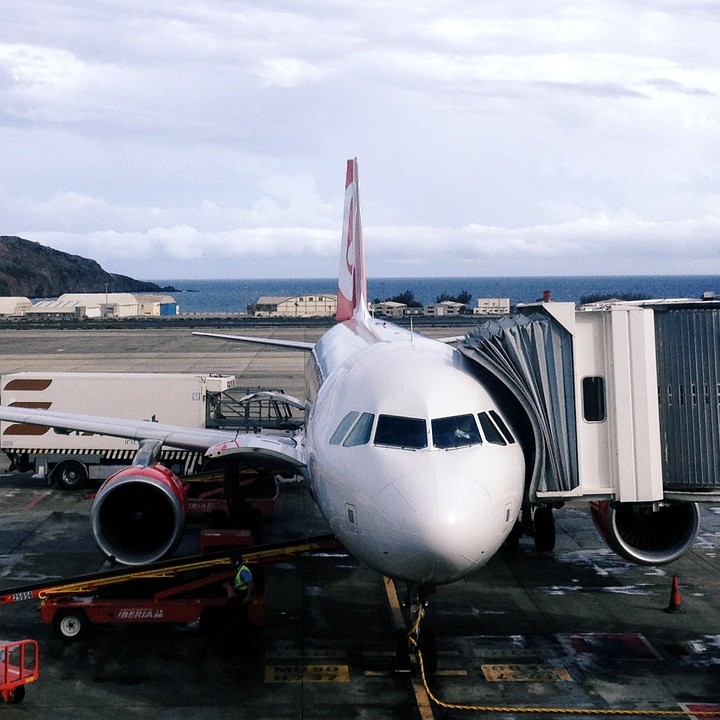In late September, Climate Week took place in New York City where a large “Climate Clock” was on display in Union Square. This clock revealed that we have less than 7 years to reverse the environmental damage humans have created. The clock was seen all over social media and was a brutal wake-up call for many. As a result of events such as this, many companies are taking large steps to become more sustainable.
globalEDGE Blog - Page 53
Publish Date:
The United States of America is a front runner for global markets. Fears are starting to impede countries on the changes the market might see with this year's presidential election in the U.S. There are many speculations that the election results will have a dramatic effect on our international markets. The novel Coronavirus has done a lot to the economies of countries all across the world. Like Germany and France, many of Europe are facing setbacks that will likely not recover until 2022.
Publish Date:
On October 7th, two of the U.S.’ largest tech companies squared off in the Supreme Court via teleconference. Since 2005, Oracle and Google have been battling over whether common interfaces between software programs can be protected by copyright. The specific interface in question, known as an application programming interface, or API, lets certain software programs “speak” to Java programs. When Google developed the Android Smartphone over a decade ago, it used Java’s API, and because Oracle now owns Java, Oracle believes it’s owed money—$9billion to be exact. This has led to what some consider the copyright case of the century.
Publish Date:
The Wine industry is taking an international hit, with it now being called, “the worst time since prohibition for fine wine producers”. With three main trends all converging, the wine industry is taking a serious hit. First, let's understand the industry as a whole.
Publish Date:
Throughout the past six months, the coronavirus has impacted almost every industry around the globe. Whether those industries are small or large, very few have excelled financially when discussing this year’s success. Nevertheless, through recent announcements and quarterly financial reports, it appears that we may begin to see some economic upturn for the global automakers.
Publish Date:
In current times, convenience has become a huge factor when consumers are scouring the market for goods and services. People want groceries to be delivered to their doorstep, entertainment at the click of a button, and two-day shipping as often as possible. Subscriptions are one area of convenience shopping that has gained popularity in the last decade. Netflix, Disney+, Hulu, and HBO dominate the television market. More and more often, we are seeing families cancel cable in favor of one or multiple of these television providers, many of which are offered at a lower monthly rate. These services also present a wide variety of shows and movies, making them more enticing to customers than traditional television.
Publish Date:
Whether listening to their favorite music, tuning into informational podcasts, catching up on captivating audiobooks, or boosting the overall volume levels of a device, millions of consumers depend on speakers as a means to output audio. Subsequently, speakers represent a critical tool for motivation, relaxation, and functionality in society. This criticality is reflected in the global speaker market, which continues to grow with consumption trends, quality improvements, and innovation.
Publish Date:
During the Coronavirus pandemic, few industries have been hit as hard as transportation. With the reduction in travel due to shutdowns, the airline industry has served far fewer customers. Last year, the TSA noted over two million travelers almost every single day. During March of this year, the number of travelers had been reduced to under 100,000 on some days. That is less than 5% of the same day one year prior. While there has been a slow increase over the last few months, there has not been a day with more than a million travelers since March 16th. In June, the International Air Transport Association even predicted the air transport industry to lose 84.3 billion dollars during this year alone. They state that the amount being saved in reduced costs is nowhere near the massive losses in revenue.
Publish Date:
For years, retailers have been criticized for having their employees work long hours between Thanksgiving and Black Friday. This year, retailers have been forced to reevaluate what their holiday shopping will look like amidst a global pandemic.
Publish Date:
If you are unfamiliar with the social media app TikTok and how they make money, check out my blog post from this past February. Since that point, TikTok’s platform has continued its ascension into the mainstream and the company has experienced rapid growth in active users across the world.












